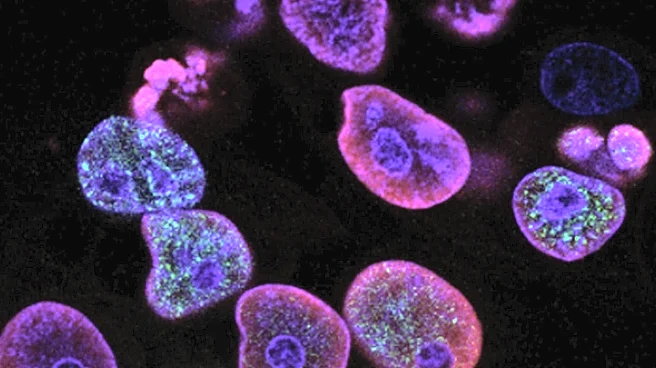What's Happening?
A recent study published in Molecular Nutrition and Food Research has uncovered significant genetic changes associated with daily consumption of orange juice. Conducted over 60 days, the study involved
20 healthy adults who consumed 500 mL of pasteurized 100% orange juice daily. Researchers observed alterations in the expression of 3,790 genes, with 2,487 genes downregulated and 1,303 upregulated. These changes were linked to improved blood pressure regulation, reduced inflammation, and enhanced lipid metabolism. The study highlights the potential of orange juice to support cardiovascular and metabolic health through its flavonoid content, particularly hesperidin, known for its antioxidant and anti-inflammatory properties.
Why It's Important?
The findings of this study suggest that regular consumption of orange juice could play a role in reducing the risk of chronic diseases such as heart disease, diabetes, and obesity. By influencing gene expression related to blood pressure, inflammation, and fat metabolism, orange juice may offer a simple dietary intervention for improving overall health. This research adds to the growing body of evidence supporting the health benefits of flavonoid-rich foods. The personalized effects observed, with variations based on body type, underscore the importance of considering individual differences in dietary recommendations. These insights could inform public health strategies and dietary guidelines aimed at preventing chronic diseases.
What's Next?
Further research is needed to confirm these findings in larger and more diverse populations. Future studies could explore the long-term effects of orange juice consumption and its impact on individuals with existing health conditions. Additionally, understanding the mechanisms behind the personalized effects observed in different body types could lead to more tailored dietary recommendations. As the study was conducted in Brazil, similar research in other regions could help determine the global applicability of these findings. Continued investigation into the health benefits of flavonoids may also reveal new opportunities for dietary interventions in chronic disease prevention.









